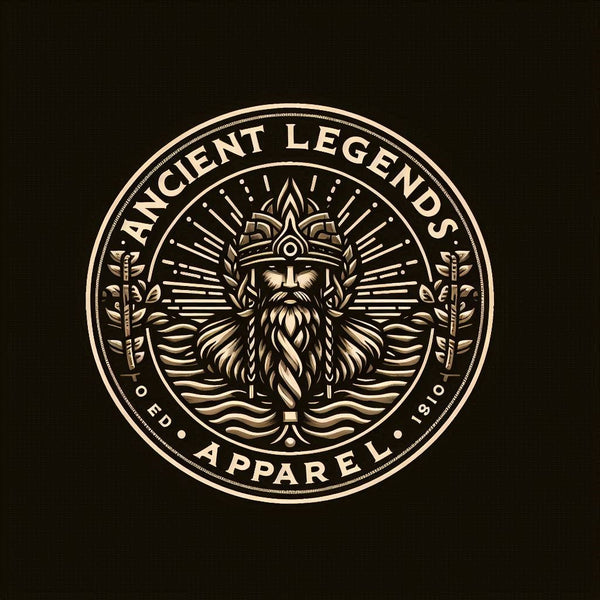What Asian Folklore Teach Us About Strength
Karl FShare
INTRODUCTION
Asia, a vast expanse of a continent entwined with rich, diverse cultures and ancient histories, is fertile ground for countless myths, legends, and folktales that have echoed through time. Each culture has a beautiful tapestry of stories, many of which revolve around profound themes, such as strength. It is a universal aspect embedded deeply into our consciousness, a virtue admired by all cultures, tinged with undertones of courage, resilience, wisdom, and defiance. Asian folklore, brimming with tales of divine heroes, supernatural beings, and ordinary men and women displaying extraordinary strength, provides incredible insights into the nature and philosophy of strength from different cultural perspectives.
ORIGIN AND CULTURAL CONTEXT
Asian folklore tales are as old as the civilizations they sprung from, passed orally from one generation to the next, increasingly embellished over centuries and shaped by historical and cultural contexts. For instance, the tale of the Monkey King Sun Wukong from Chinese folklore was popularized during the Ming Dynasty in the classical novel "Journey to the West" by Wu Cheng'en, reflecting the period's social and philosophical dynamics. Sun Wukong, symbolizing the inherent rebel, conflicts with the Confucian values of orderliness, hierarchy, and human relationships. Yet, his indomitable will, boundless wisdom, unparalleled martial capabilities, and spiritual strength to transcend mortal limitations resonate universally, making him an emblem of strength—a bold symbol of ambition, resilience, and wisdom.
THE LEGEND OR STORY
The legend of Sun Wukong begins with his miraculous birth from a mystical stone, embodying the earth's strength and energy. His adventurous spirit leads him to become the king of monkeys and embark on a quest for immortality, learning Taoist magic and martial arts from a sage. When Heaven recognizes his extraordinary aptitudes and attempts to manipulate and control his abilities by offering a lowly position, Sun Wukong rebels, wreaking havoc in Heaven, battling celestial armies single-handedly, and defying even the Jade Emperor himself. It's a tale that emphasizes independence, intellect, and the audacious courage to challenge unjust authority.
INTERPRETATIONS AND SYMBOLISM
Sun Wukong's story is a powerful allegory of strength's multiple dimensions. Physically, he embodies great prowess—surpassing ordinary mortals and matching gods. Intellectually, he wields wisdom and cunning, a testament to the idea that true strength extends beyond physicality. His rebellion against Heaven reflects the strength of individuality, rebellion, and challenging authority, illuminating the existential theme of human will against fate. This strength of character compellingly subverts Confucian values and reflects Daoist philosophy, symbolizing the boundless potential of human spirit and individuality in shaping one's destiny.
COMPARISONS IN OTHER CULTURES
Similar themes of heroism and strength occur in folklore across cultures. In Greek mythology, there's the demi-god Hercules, renowned for his incredible strength and his Twelve Labours, symbolizing mankind's struggle against adversity. In Hindu mythology, Hanuman mirrors aspects of the Monkey King—both divine monkey figures known for strength, intelligence, and unwavering devotion. These storied figures exhibit qualities that their cultures respect and admire, embodying strength in a fashion that transcends mere physical might.
MODERN REFERENCES AND POP CULTURE
In contemporary times, ancient myths continue to inspire literature, film, games, and anime, intriguing new audiences with timeless tales of strength and heroism. Sun Wukong's legend has heavily influenced modern pop culture—reimagined in films such as "The Monkey King" series, animated shows like "Monkey King: Hero Is Back," and video games like "Dota 2" and "League of Legends." His legend encapsulates the fascination with the idea of an underdog standing against mighty forces, highlighting cultural values of tenacity, courage, and resilience against adversity.
LEGACY AND LASTING MYSTERIES
Asian folklore and its personification of strength hold countless lessons: the strength of an individual transcends physical might, encompasses wisdom, courage, resilience, and the will to challenge fate itself. The stories make us rethink our understanding and perception of strength. Despite evolving times, technological advances, and societal shifts, the essence and wisdom of these tales retain relevance, offering clues to life's mysteries and our individual journeys. The tale of Sun Wukong, like many others, continues to endure—in our hearts, our culture, and our collective human narrative.
In decoding ancient legends such as these, we not only journey back in time to discover our roots and origins but also gain insight into our present and future. Whether they are tales of gods and warriors or ordinary men and women displaying extraordinary fortitude, Asian folklore stories remain a timeless narrative legacy. Their echoes still reverberate across centuries, teaching us that strength, in its many forms, is indeed the greatest virtue to possess, nurture, and celebrate.
